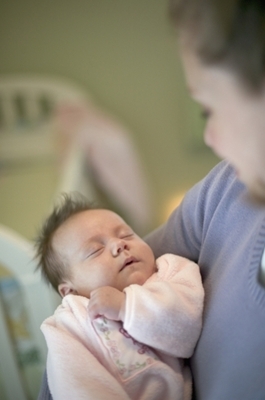How Babies Sleep 1
How Babies Sleep

When we have a new baby, many of us often find that talking about sleep causes others to offer (often unwanted) suggestions for how we can (or ‘should’) encourage our baby to sleep more. Although we all know that the first few months with a baby will involve disrupted nights, our expectations for how long this lasts, and our understanding of how normal infant sleep develops can be unclear or unrealistic, and comments from others can be worrying: Am I doing it right? Is there something wrong with my baby?
At some point during their baby’s first months of life, most parents wonder whether there is something they could — even should — be doing to ‘help’ their baby sleep longer, deeper, better, or through the night.
As parental sleep deprivation builds, we may search for tips on getting a ‘good night’s sleep’, or we may be tempted to try out the suggestions of family, friends, or well-wishers. But how do we know these suggestions are safe, healthy for our baby, or won’t have long-term negative consequences?
In cases where we are unhappy with our infant’s sleep development it may not be the baby that is problematic, but our expectations regarding sleep and babies’ needs are not accurate.
‘Is s/he a good baby?’ and ‘Do they sleep well?’ are questions commonly posed to new parents in the early days of their infant’s life. Typically the enquirer wants to know whether the baby is ‘contented’ and ‘sleeps well’. Those whose babies are ‘good’ are congratulated, whereas those whose babies are ‘troublesome’ or wake often receive sympathy and tips on how to improve their baby’s sleep habits. A ‘good’ or ‘contented’ baby in Western society seems to be a comatose baby, and the management of infant sleep is one of the first areas of parenting by which new mothers and fathers are judged by others. It is not surprising then that infant sleep issues are a source of anxiety and frustration for many parents.
Nowadays parents can feel under pressure to help their babies become independent from an early age. Popular myths suggest ‘good’ babies sleep through the night, sleep alone, and do not require attention in the night. As a result, parents may try to ‘help’ their baby ‘sleep through’ as early as possible. But expecting a human baby to sleep alone, and for prolonged periods, is unrealistic and can be harmful. The mismatch in what parents might expect or desire regarding infant sleep, and their baby’s biological abilities and needs during the night can lead to some unnecessary conflicts.
For example, new-born babies have very small stomachs, and need to feed often, so they wake at least every 2-3 hours in order to do so, sometimes more often. As babies grow, they are able to last slightly longer between feeds, however, human milk (and today’s infant formula containing chemically-modified cows’ milk proteins) is quickly digested, and babies commonly need to feed frequently throughout the day and night-time. By the time babies are 3 months old, some (but not all) begin to start settling (sleeping through a night-time feed for a stretch of up to 5 hours). By the time they are 5 months old, half of them may have started to sleep for an eight-hour stretch on some nights. Generally, though, babies do not sleep all night-every night until they are close to a year old. One study investigating infant sleep duration found that 27% of babies had not regularly slept from 10pm to 6am by the age of 1 year. 13% of babies had not regularly slept through for 5 hours or more by the age of 1 year.
However, both paediatric and popular knowledge about babies’ sleep maturation and regulation is primarily based upon studies of formula-fed infants sleeping alone during the 1950s and 1960s. In the following pages we review the research evidence about normal infant sleep, and wherever possible we consider the sleep of babies who are fed human milk to be the ‘biologically normal’ condition.
